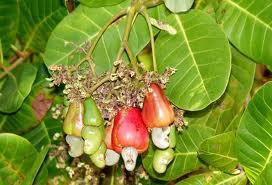
Almost all the major cashew processing companies in the country have shut down their operations as the result of many challenges, including lack of raw nuts supply and the infamous power crisis.
Of the 12 processing companies in the country’s cashew hub -- the Brong Ahafo Region -- only one, Mim Cashew Nuts Limited, remains in operation.
The processors say they have been bogged down by a plethora of challenges, including insufficient supply and skyrocketing cost of raw cashew nuts, high cost of credit, inefficient processing methodology, and the niggling erratic supply of power.
Kona Agro Processing Limited at Awisa near Wenchi is one of the companies that have suspended operations.
Its Managing Director Raymond Taylor told the B&FT that business is so uncompetitive that management decided in August 2014 that operations had to be suspended, leading to 185 people losing their jobs.
Amidst the insufficient local production of the commodity, he said, processors are seriously feeling the pinch from the 2013 ban by Ivorian Authorities on the importation of cashew nuts from that country.
Cashew industry players in Ghana (exporters and processors) trade around 150,000-200,000 metric tonnes annually and rely heavily on RCN from Cote d’Ivoire and other West African countries to supplement local production, which hovers around 40,000-50,000mt.
Mr. Taylor indicated that before the Ivorian ban came into force they used to buy a metric tonne for US$700, but currently the same quantity sells for not less than US$900.
While the development, in effect, is good for farmers of the produce, it is badly affecting the business of processors, he said.
Another challenge the industry faces, he said, is the lack of access to credit as banks remain sceptical about lending to agribusiness.
Mr. Taylor also believes that the processing methodology employed locally needs to be moved away from the labour intensive Indian style, which increases production costs.
“Going forward, the Vietnamese processing methodology that thrives on automation and mechanisation would be appropriate for the industry to increase output with limited labour,” he said.
“The Indian style was supposedly good for Africa because of lack of electricity and the like, but gradually it has become outmoded for the industry. When we started operation, we were producing 4mt per day with 300-330 people. But in Vietnam, you can process the same 4mt a day with 100 people,” he added.